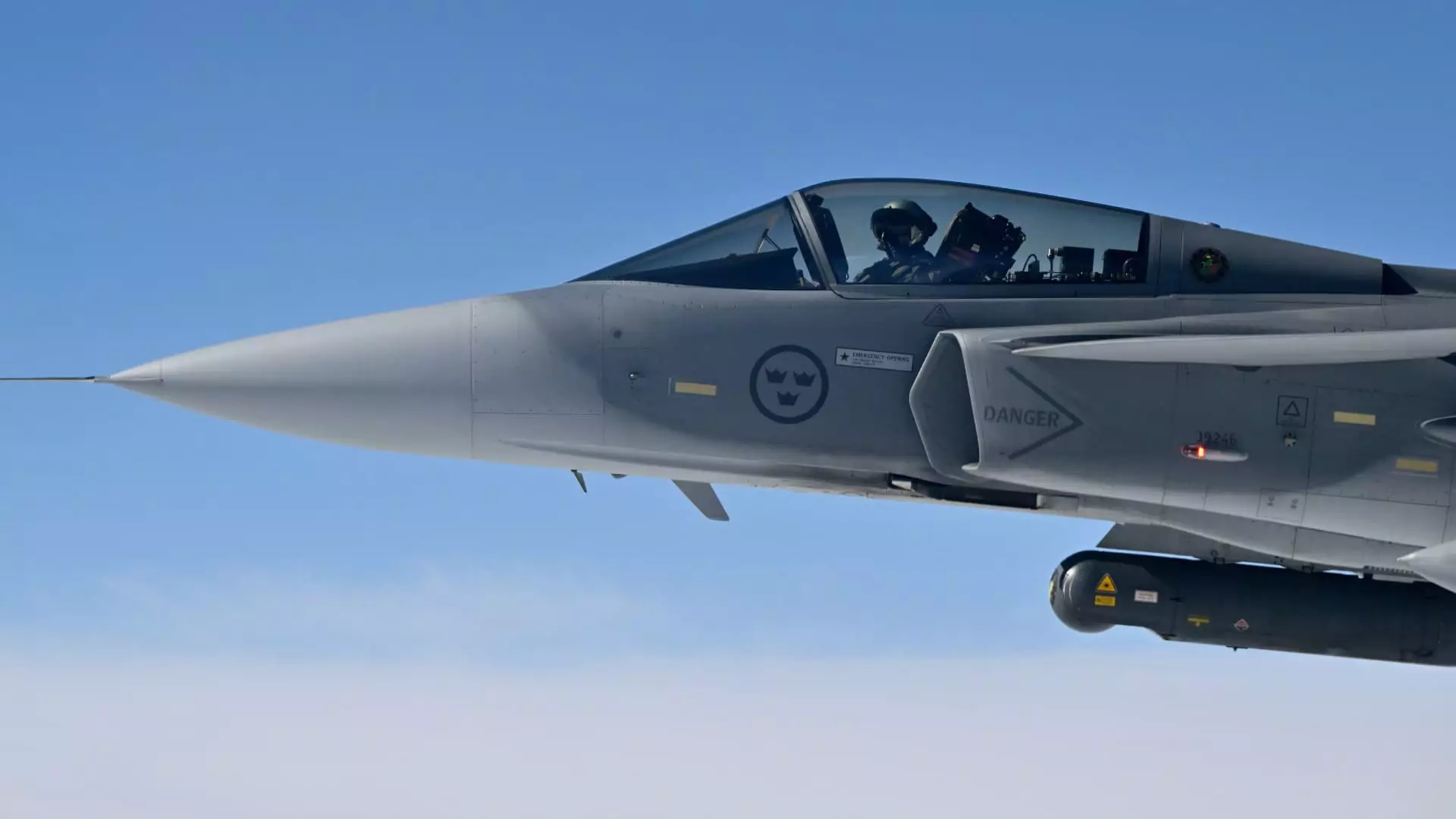In recent months, the defense sector has experienced an extraordinary boom, exemplified by Saab’s impressive financial results and surging stock price. This meteoric rise signals a broader regional trend: Europe’s aggressive push to ramp up defense budgets in response to geopolitical tensions and growing security concerns. While this appears to be a sign of resilience and proactive policymaking, it is also a reminder of how the continent’s pursuit of military strength can spiral into instability. The renewed focus on rearmament might seem necessary amidst international uncertainties, but it risks fueling escalation rather than fostering sustainable peace.
The European Commission’s proposed €2 trillion budget, and plans to mobilize hundreds of billions for security purposes, are ambitious steps. However, these expansions prompt a critical question: are these investments truly about safeguarding democratic values and ensuring stability, or are they fueling a militarized mindset that dismisses diplomacy and dialogue? Increasing defense spending can be a double-edged sword—bolstering national security while risking an arms race that destabilizes the fragile balance of power. Instead of viewing militarization as the default solution, Europe should critically evaluate whether such investments serve long-term peace or merely perpetuate a cycle of insecurity.
Economic Growth or Short-term Profit? The Illusion of Defensive Prosperity
Saab’s financial results are undoubtedly remarkable. A 49% increase in operating income and a 30% rise in sales point toward a thriving defense industry that’s benefitting from regional demand. Yet, beneath these numbers lies a troubling emphasis on profit-driven motives within a sector often associated with geopolitical tension. The rapid escalation of defense contracts may temporarily boost GDP figures and stock prices, but it risks shielding underlying priorities—profit over genuine peace and stability.
Furthermore, the substantial surge in defense spending isn’t just a matter of national security; it’s also about corporate gains. Defense corporations like Saab are uniquely positioned to profit from such geopolitical shifts, raising questions about the influence of economic interests at the expense of pragmatic, multilateral solutions. As European nations increase their reliance on military hardware, they inadvertently prioritize military-industrial complex profits over fostering diplomacy, international cooperation, and social development. This skewed focus threatens to create a cycle where economic gains from armaments overshadow the pursuit of peace, justice, and social progress.
The Political Implications of Militarization on European Unity
The push toward increased defense spending also carries significant political repercussions. European unity is already strained by diverse national interests, economic disparities, and existential debates about sovereignty. The drive for militarization risks deepening these divides, transforming regional solidarity into competition for military dominance. The European Union’s embrace of a “rearmament era” may foster a sense of collective security for some, but it can also undermine efforts to build a genuinely integrated, peaceful Europe.
The shift aligns somewhat with U.S. geopolitical interests, especially under the influence of global superpowers pressing Europe to secure its own defenses. While self-reliance in defense might seem pragmatic, it shouldn’t come at the cost of compromising diplomatic solutions or international stability. Europe’s center-left and liberal voices should question whether this pursuit of military strength aligns with their core values of human rights, diplomacy, and social justice, or if it serves narrow political and economic interests cloaked in security rhetoric. Ultimately, continuous escalation could undermine the very foundations of European cooperation, making conflict more tempting than compromise.
In sum, Europe’s recent focus on boosting defense capabilities is a reflection of contemporary geopolitical anxieties. While it might foster economic growth and perceived strength in the short term, it risks fostering an environment of mistrust, competition, and instability. This approach demands a critical reevaluation—embracing diplomacy, social cohesion, and international cooperation as more effective safeguards for a peaceful future.

